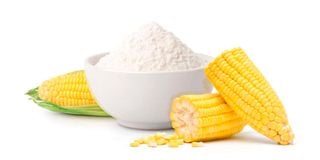Premium
15pc of millers sell maize flour likely to make you sick - Research

Maize millers are producing maize flour containing high level of aflatoxin thus exposing consumers to various health complications.
Fifteen percent of maize millers in the country produce maize flour containing high level of aflatoxin thus exposing consumers to various health complications, a new market surveillance study has shown.
The study, conducted by the Ministry of Health in partnership with the Jomo Kenyatta University of Agriculture and Technology (JKUAT), found that only 85.3 percent of millers in the country meet the Kenya Bureau Standards (Kebs) requirement for maximum permissible aflatoxin levels.
According to Daniel Sila, a JKUAT professor who coordinated the market surveillance, the study also revealed a disparity in terms of compliance to industry standards on aflatoxin levels.
“We see a regional disparity in compliance with Kebs standards. In some areas such as Eastern Kenya, they have a high non-compliance level as compared to others such as Rift Valley. The findings have been almost consistent for the past three years exposing many Kenyans to danger,” Prof Sila said.
The chairperson of United Grain Millers Association (UGMA), Mr Ken Nyaga, urged the government to crackdown on unscrupulous maize suppliers to protect Kenyans’ health.
“We have had cases where one miller rejects maize due to the high aflatoxin levels but the maize still finds itself in some of our boarding schools. It is a sad situation that we are exposing Kenyans to and I urge the government to take action,” he said.
The research also shows that most maize and wheat millers in the country do not add the essential minerals and vitamins to their flour. The process, known as fortification, is a mandate from the government to deal with malnutrition.
Some of the products that need to be fortified include maize flour that should be processed with additional zinc and iron, salt with iodine and vegetable fats and oils with Vitamin A.
Also Read: NCPB to buy 90kg bag of maize for Sh3,000
However, of those surveyed, only 46.4 percent of maize millers and 84 percent of wheat flour millers comply with food fortification standards. Most large scale maize millers (57.9 percent) comply while for the small scale millers, only 30.4 percent comply.
In Kenya, it is estimated that 70 percent of the packaged maize flour consumed in the urban areas is produced by large scale millers. But in most rural areas and lower-income neighbourhoods such as slums, the flour is sourced from small and medium-scale millers.
The findings indicate that many Kenyans could be consuming food without the necessary nutrients, thus exposing them to nutrition deficiency especially for vulnerable groups such as women and children.
The researchers visited 104 maize millers in the country and collected 500 samples that were analysed at National Public Health and JKUAT laboratories.





